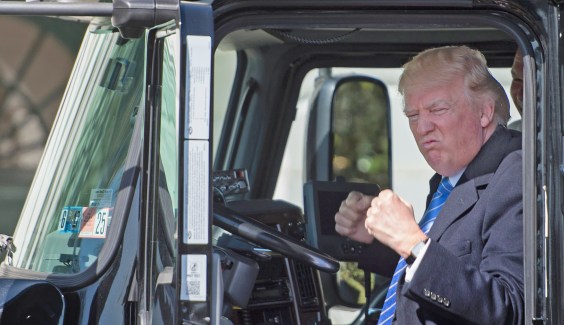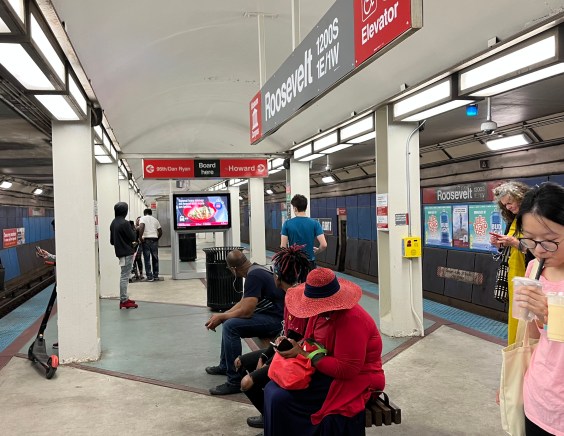As Streetsblog Capitol Hill reported yesterday, Sen. John McCain (R-AZ) offered amendments striking money for more than 20 transit projects from the bill that funds the U.S. DOT next year.
 Sen. John McCain (R-AZ) (Photo: Reuters via MediaBistro)
Sen. John McCain (R-AZ) (Photo: Reuters via MediaBistro)The individual amendments have yet to come to a vote, but earlier today the Senate defeated a McCain proposal to divert all earmark money from the DOT spending bill to NextGen, the federal government's long-delayed system for tracking airline delays.
McCain's NextGen amendment was brought down on a 26-68 vote. Three Democratic earmark critics -- Sens. Russ Feingold (WI), Claire McCaskill (MO), and Evan Bayh (IN) -- voted alongside the GOP's 2008 presidential nominee.
It's worth noting, however, that the transit projects McCain wants to strike are unlike most other earmarks. The projects have already received funding approval from the Federal Transit Administration's (FTA) New Starts program, clearing the way for members of Congress to swoop in and direct transit money to their home states.
So even if McCain had his way, the FTA still would be free to use its annual budget on other transit projects -- having altogether no effect his stated goal of deficit reduction through a decrease in earmarking.
Meanwhile, McCain is not the only senator taking aim at clean transportation projects. Sen. Tom Coburn (R-OK) has offered seven amendments to the DOT spending bill, two of which would block funding for bicycle and pedestrian paths, as well as other programs that fall under the umbrella of "transportation enhancements."
More details follow after the jump.
The first of Coburn's amendments would allow states to opt out of the current mandate that 10 percent of federal transportation aid be spent on "enhancements" such as bicycle and pedestrian paths, bike and pedestrian safety education, or the conversion of abandoned rail tracks to bike-ped paths. A report released by McCain and Coburn in July found that states spent $3.7 billion on such enhancements between 2004 and 2008.
Coburn's second clean transportation-related amendment would block funding for bike and pedestrian paths and other "enhancement" projects until the DOT certifies that the nation's highway trust fund is fiscally solvent -- a prospect that is exceedingly unlikely for the forseeable future.





